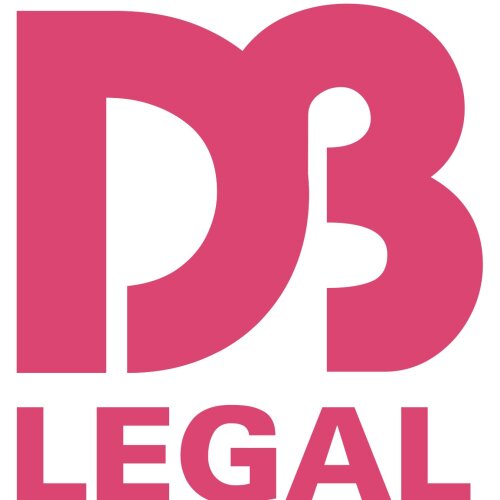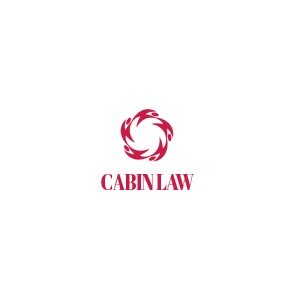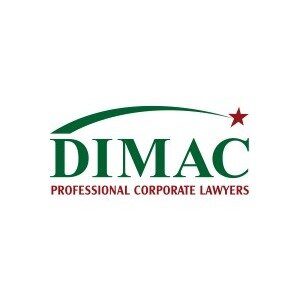Best Energy, Environment & ESG Lawyers in Da Nang
Share your needs with us, get contacted by law firms.
Free. Takes 2 min.
List of the best lawyers in Da Nang, Vietnam
Vietnam Energy, Environment & ESG Legal Articles
Browse our 1 legal article about Energy, Environment & ESG in Vietnam written by expert lawyers.
- Vietnam Rooftop Solar: New Tariffs and Self-Consumption Rules
- Factories can normally only sell excess rooftop solar power to EVN if their systems and contracts fit the specific categories defined in the latest Prime Minister decision and MOIT circulars - pure self-consumption systems follow a lighter, different regime. 2025 rooftop solar tariffs are expected to vary by project type... Read more →
About Energy, Environment & ESG Law in Da Nang, Vietnam
Energy, Environment, and ESG (Environmental, Social, and Governance) law covers a broad range of legal regulations and requirements that apply to energy production and consumption, environmental protection, and sustainable business practices. In Da Nang, a rapidly growing city in central Vietnam, the focus on these legal areas is increasing due to the region's need for sustainable growth, responsible energy use, and environmental preservation. As Da Nang aims to become a green and livable city, understanding and complying with these legal frameworks is essential for companies, investors, and individuals involved in energy and environmental sectors.
Why You May Need a Lawyer
There are several situations where legal assistance can be crucial in the field of Energy, Environment, and ESG in Da Nang. These may include navigating environmental compliance for new construction projects, setting up or investing in renewable energy plants, dealing with disputes over land use or environmental impact, or ensuring your business meets mandatory sustainability reporting requirements. Lawyers can also help negotiate and draft contracts with ESG clauses, represent you in regulatory investigations, and ensure you are up to date with the latest compliance standards to avoid fines or legal issues.
Local Laws Overview
In Da Nang, energy, environment, and ESG matters are regulated by a combination of national Vietnamese legislation and local municipal rules. Key laws include the Law on Environmental Protection, the Law on Energy, and the Law on Investment, alongside various circulars and decrees issued by government ministries. Da Nang authorities have also introduced specific initiatives to promote green energy, waste management, and sustainable urban development. Compliance with these regulations is managed by local bodies like the Da Nang Department of Natural Resources and Environment and the Da Nang Department of Industry and Trade.
Frequently Asked Questions
What types of energy projects are most common in Da Nang?
The most common energy projects include solar power installations, energy efficiency upgrades, and small-scale wind and hydroelectric projects. There is also significant investment in waste-to-energy facilities and smart grid technology.
What are the key environmental permits required for new developments?
Developers typically need to obtain an Environmental Impact Assessment (EIA) report, confirmation from the Department of Natural Resources and Environment, and other specific operational permits depending on the project’s nature and location.
Is foreign investment allowed in the energy sector in Da Nang?
Yes, foreign investment is permitted with certain restrictions. Investors must comply with the Law on Investment, local licensing procedures, and may be subject to project-specific conditions regarding land use, environmental protection, and technology.
What are ESG requirements for businesses operating in Da Nang?
ESG requirements commonly include transparent environmental reporting, observance of labor rights, and implementation of governance best practices. Larger enterprises may be required to submit annual sustainability reports as per government guidelines.
How do environmental violations get penalized?
Violations can result in fines, mandatory corrective measures, suspension of operations, or even criminal prosecution in severe cases. Penalties are enforced by local authorities and relevant ministries.
Can local residents file complaints about environmental pollution?
Yes, residents can file complaints with the Da Nang Department of Natural Resources and Environment or through the local People’s Committee. The government investigates and takes necessary action if violations are identified.
Are there incentives for renewable energy projects?
Yes, investors in renewable energy may benefit from tax reductions, access to preferential loans, and support in securing project land. Incentives are subject to government policies and project approval criteria.
What is the process for conducting an Environmental Impact Assessment (EIA)?
The process involves preparing an EIA report, submitting it to the appropriate government office, responding to feedback, and receiving final approval before any construction or operational permits are issued.
How can companies stay updated on new ESG regulations?
Companies can subscribe to updates from relevant government agencies, consult with local legal professionals, attend industry seminars, or participate in business associations that focus on sustainability and compliance.
What role do local authorities play in enforcing ESG and environmental laws?
Local authorities such as the Da Nang Department of Natural Resources and Environment oversee compliance, process permits, investigate reports of violations, and support businesses in meeting environmental and ESG standards.
Additional Resources
There are several organizations and government bodies that can provide information or assistance:
- Da Nang Department of Natural Resources and Environment
- Da Nang Department of Industry and Trade
- Vietnam Ministry of Natural Resources and Environment
- Vietnam Chamber of Commerce and Industry
- Vietnam Business Council for Sustainable Development
- Local NGOs focused on environmental awareness and advocacy
Next Steps
If you require legal assistance related to Energy, Environment, or ESG in Da Nang, start by identifying your specific issue or project type. Gather all relevant documentation, including permits, contracts, or correspondence with authorities. Consult with a legal specialist experienced in Vietnamese energy, environmental, or ESG law to review your case and advise on compliance or risk mitigation. For more complex issues, consider engaging a full-service law firm with local insight. Stay informed about regulatory changes and maintain open communication with relevant authorities to proactively resolve any legal challenges.
Lawzana helps you find the best lawyers and law firms in Da Nang through a curated and pre-screened list of qualified legal professionals. Our platform offers rankings and detailed profiles of attorneys and law firms, allowing you to compare based on practice areas, including Energy, Environment & ESG, experience, and client feedback.
Each profile includes a description of the firm's areas of practice, client reviews, team members and partners, year of establishment, spoken languages, office locations, contact information, social media presence, and any published articles or resources. Most firms on our platform speak English and are experienced in both local and international legal matters.
Get a quote from top-rated law firms in Da Nang, Vietnam — quickly, securely, and without unnecessary hassle.
Disclaimer:
The information provided on this page is for general informational purposes only and does not constitute legal advice. While we strive to ensure the accuracy and relevance of the content, legal information may change over time, and interpretations of the law can vary. You should always consult with a qualified legal professional for advice specific to your situation.
We disclaim all liability for actions taken or not taken based on the content of this page. If you believe any information is incorrect or outdated, please contact us, and we will review and update it where appropriate.
Browse energy, environment & esg law firms by service in Da Nang, Vietnam
Da Nang, Vietnam Attorneys in related practice areas.













